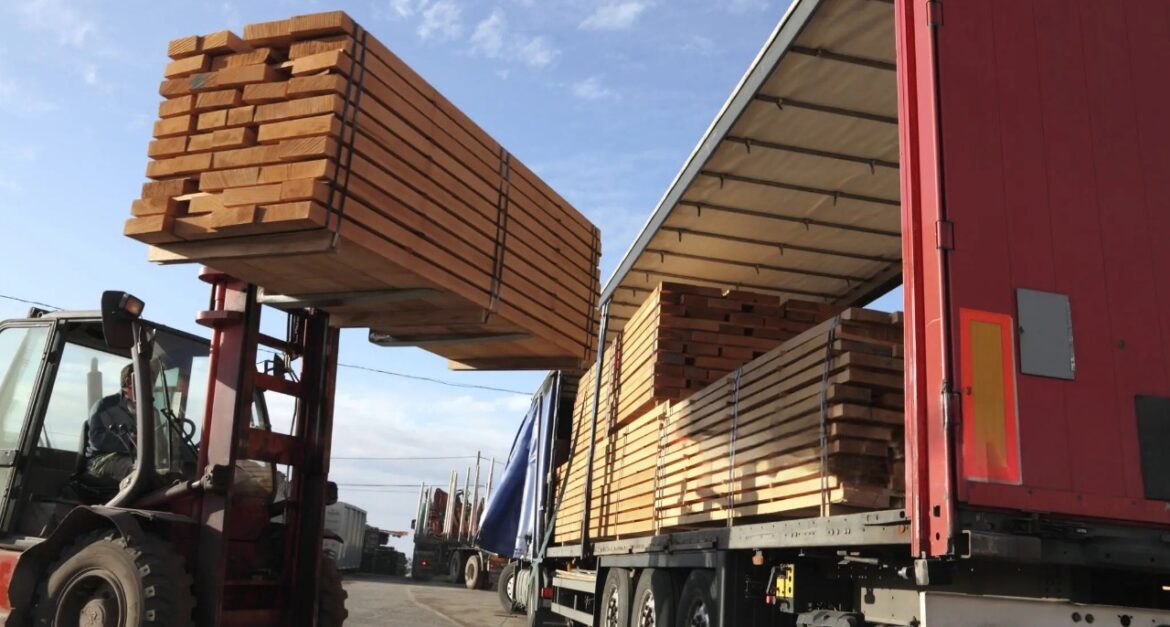
Build Smart, Import Smarter
Are you importing cement, steel bars, glass, or tiles into Saudi Arabia and struggling with customs classification or SABER approval?
You’re not alone. Every year, importers lose millions in unnecessary customs duties due to incorrect HS coding and non-alignment with SASO standards.
In a country driving massive infrastructure growth under Vision 2030, the construction import system is intricate but predictable — if you know your HS codes.
This ultimate guide breaks down the construction HS codes in KSA, SASO 275 compliance, SABER certification, and import strategies to help you build a compliant, cost-efficient import chain.
What Are HS Codes and Why They Matter for Construction Imports
The Harmonized System (HS) is a globally standardized classification system that assigns numeric codes to traded goods.
Each code determines import duties, inspection requirements, and compliance approvals.
In Saudi Arabia, the Zakat, Tax and Customs Authority (ZATCA) uses HS codes to align with SASO and SABER systems for safety and conformity checks.
When it comes to construction materials, accuracy in HS classification can be the difference between smooth customs clearance and costly port delays.
For example:
| Material Type | Example HS Code | Description |
| Cement (Portland) | 2523.29.00 | Hydraulic cements, Portland type |
| Reinforcing Steel Bars (Rebar) | 7214.20.00 | Hot-rolled, deformed bars for construction |
| Ceramic Tiles | 6907.21.00 | Glazed tiles for flooring and walls |
| Flat Glass | 7005.29.00 | Non-wired glass, clear float |
| Thermal Insulation Boards | 6806.10.00 | Slag wool, rock wool for insulation |
| Gypsum Boards | 6809.11.00 | Plasterboard for construction use |
| Aluminum Profiles | 7604.21.00 | Hollow aluminum extrusions for structures |
| Construction Adhesives | 3506.91.00 | Adhesives based on rubber or plastics |
| Bitumen Sheets | 6807.10.00 | Asphalt or bitumen-based building sheets |
| Paints & Coatings | 3208.10.00 | Non-aqueous paints for interior or exterior walls |
Using the correct HS code ensures:
- You pay the right customs duties (not more than required)
- SABER product conformity aligns seamlessly
- Faster port clearance and less chance of re-inspection
Understanding the Role of HS Codes in Construction Imports
The Harmonized System (HS) is the backbone of international trade classification.
In Saudi Arabia, the Zakat, Tax, and Customs Authority (ZATCA) uses HS codes to define:
- Duty percentages
- Inspection intensity
- SABER and SASO conformity paths
- Eligibility for exemptions or reduced tariffs
A correct construction material HS code means:
- Accurate customs duty calculation
- Smooth SABER registration
- Fewer delays at Saudi ports
SABER and SASO 275: The Compliance Framework
Every construction product entering Saudi Arabia must align with:
- SABER (the digital product conformity system)
- SASO 275 standards (safety, fire, and moisture resistance)
For example:
- Cement must pass compressive strength tests
- Steel bars must meet tensile and yield strength requirements
- Tiles must comply with water absorption and slip resistance ratings
- Insulation materials must meet fire resistance and thermal performance criteria
Palm Horizon KSA ensures your shipments align with these standards through complete HS code verification, SABER submission, and logistics coordination.
Expanded HS Code Reference Table for Construction Materials (Saudi Arabia 2025)
| Category | Product Type | HS Code | Description |
| Cement & Concrete | Portland Cement | 2523.29.00 | Hydraulic cement (Portland type) |
| White Cement | 2523.30.00 | Portland cement, white type | |
| Concrete Mix | 3824.40.00 | Prepared concrete mixtures | |
| Steel & Metal | Reinforcing Steel Bars (Rebar) | 7214.20.00 | Hot-rolled, deformed bars |
| Steel Rods | 7213.91.00 | Iron/steel rods and wire rods | |
| Structural Steel Sections | 7216.33.00 | H-beams, I-beams, and channels | |
| Galvanized Steel Sheets | 7210.49.00 | Zinc-coated flat-rolled steel | |
| Stainless Steel Pipes | 7306.40.00 | Welded stainless steel tubes | |
| Iron Fittings | 7307.19.00 | Cast iron pipe fittings | |
| Tiles & Flooring | Ceramic Tiles | 6907.21.00 | Glazed ceramic floor/wall tiles |
| Porcelain Tiles | 6907.23.00 | Porcelain tiles with low absorption | |
| Mosaic Tiles | 7016.10.00 | Glass mosaic or stone-based tiles | |
| Marble & Granite Slabs | 6802.93.00 | Worked monumental or building stone | |
| Glass & Windows | Float Glass | 7005.29.00 | Clear float glass, unworked |
| Tempered Safety Glass | 7007.19.00 | Toughened glass for doors/windows | |
| Laminated Glass | 7007.29.00 | Glass with plastic interlayers | |
| Mirrors | 7009.92.00 | Glass mirrors, framed or unframed | |
| Insulation & Panels | Rock Wool | 6806.10.00 | Slag wool, mineral wool boards |
| Foam Board Insulation | 3921.11.00 | Polystyrene or polyurethane foam | |
| Aluminum Composite Panels | 7610.90.00 | Prefabricated aluminum panels | |
| Thermal Insulation Sheets | 6806.90.00 | Other insulating materials | |
| Paints, Sealants & Adhesives | Wall Paint | 3208.10.00 | Paints and varnishes (non-aqueous) |
| Emulsion Paint | 3209.10.00 | Water-based paints | |
| Industrial Coatings | 3208.90.00 | Paints for metal and concrete | |
| Construction Adhesives | 3506.91.00 | Adhesives based on rubber/plastic | |
| Silicone Sealants | 3910.00.00 | Polysiloxane-based sealants | |
| Pipes, Plumbing & Fittings | PVC Pipes | 3917.23.00 | Plastic tubes for water/conduit |
| HDPE Pipes | 3917.32.00 | Polyethylene pipes for infrastructure | |
| Copper Tubing | 7411.21.00 | Seamless copper pipes | |
| Pipe Fittings (Plastic) | 3917.40.00 | Plastic joints and couplings | |
| Sanitary Fittings | 7324.10.00 | Stainless steel sanitary ware | |
| Fasteners & Hardware | Bolts and Nuts | 7318.15.00 | Steel bolts, nuts, washers |
| Nails & Screws | 7317.00.00 | Steel and iron fasteners | |
| Hinges & Locks | 8301.10.00 | Door locks, keys, hinges | |
| Scaffolding Clamps | 7308.40.00 | Equipment for construction sites | |
| Waterproofing & Roofing | Bitumen Sheets | 6807.10.00 | Asphalt/bitumen building sheets |
| Roofing Tiles | 6905.10.00 | Clay roofing materials | |
| Roof Membranes | 3921.90.00 | Plastic waterproofing sheets | |
| Interior Finishing | Gypsum Boards | 6809.11.00 | Plasterboard and wallboard |
| Decorative Plaster | 3214.10.00 | Dry plaster and surface fillers | |
| Ceiling Panels | 6806.20.00 | Mineral fiber-based ceiling tiles | |
These 40+ HS codes represent the most imported building materials in Saudi Arabia.
Choosing the right one saves you up to 12% in customs duties and ensures seamless SABER certification.
How Incorrect HS Codes Increase Your Import Costs
Many importers unknowingly classify products under generic codes to speed up paperwork — but this leads to:
- Higher tariff rates
- Extended inspection cycles
- Blocked SABER CoC issuance
- Re-export or destruction orders
For example:
- Classifying rock wool (6806.10.00) as “miscellaneous mineral material” (6810.19.00) adds 5% extra duty.
- Mislabeling tempered glass (7007.19.00) as regular glass can cause SASO test rejection for safety compliance.
Correct classification means your products:
- Clear customs faster
- Qualify for AEO low-risk status
- Align with Vision 2030 project eligibility
Industries Benefiting from Correct HS Coding
- Construction and Engineering – Reduced project delays and predictable budgeting
- EPC Contractors – Improved bid accuracy and material delivery tracking
- Importers and Traders – Faster customs cycle and reduced demurrage
- Manufacturers – Streamlined certification under SASO standards
- Government & Infrastructure Projects – Compliance with local building safety codes
Palm Horizon KSA’s logistics expertise ensures every shipment — from cement pallets to glass containers — reaches the site fully compliant and duty-optimized.
Implementation: From Classification to Clearance
The compliance flow for building materials typically follows:
- Product Identification
Define technical specs, composition, and intended use. - HS Code Assignment
Map to ZATCA’s customs tariff schedule. - SABER Product Registration
Enter code and technical data in SABER. - SASO Testing
Conduct lab testing for safety, durability, and conformity. - Certificate of Conformity (CoC)
Issued upon successful compliance. - Customs Clearance
Palm Horizon ensures port release under verified documentation.
Each stage is automated and optimized when managed through Palm Horizon’s customs solutions, reducing turnaround time by up to 40%.
Frequently Asked Questions
Q1. How do I verify my construction material HS code before import?
You can check via the ZATCA Tariff Lookup or consult a licensed logistics provider like Palm Horizon KSA to ensure SASO alignment.
Q2. Which building materials need SASO 275 certification?
All structural and safety-critical materials such as cement, steel, glass, insulation, and tiles require testing under SASO 275.
Q3. Does SABER require HS codes for each shipment?
Yes — every shipment’s product line must carry its exact HS code, even if multiple products are combined in one container.
Q4. Can incorrect HS codes affect AEO compliance?
Absolutely. Inaccurate classifications can trigger risk flags under AEO inspection protocols, removing your low-risk status.
Q5. What happens if my product’s HS code changes after import?
ZATCA may reclassify and retroactively charge duties, delay clearance, or suspend importer privileges until corrected.
Q6. Are insulation materials considered high-risk under SABER?
Yes, due to flammability testing. Materials under 6806.10.00 or 3921.11.00 require advanced lab certification.
Q7. How can Palm Horizon support with multi-category imports?
Palm Horizon’s customs experts handle cross-category HS validation, from steel and cement to paint and waterproofing, ensuring end-to-end logistics precision.
Conclusion: Building Compliance is Building Success
Your building material is more than just cargo — it’s a component of Saudi Arabia’s future infrastructure.
But every shipment begins with one key element: the correct HS code.
From cement and steel to tiles and insulation, accurate classification under Saudi HS coding ensures:
- Duty efficiency
- Compliance confidence
- Faster project execution
When paired with a trusted logistics partner like Palm Horizon KSA, you don’t just import materials — you import reliability, compliance, and savings.
So before your next shipment hits the port, check your HS codes. Because in Saudi Arabia’s construction market, precision isn’t optional — it’s profitable.





